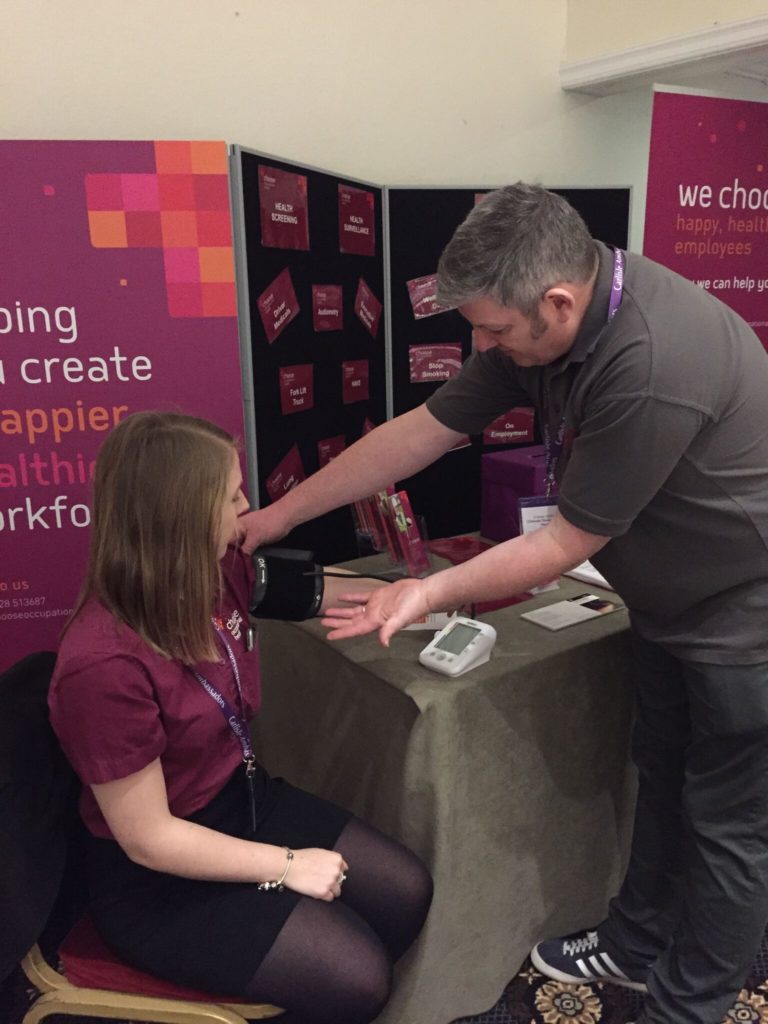Sandra Holliday from Choose Occupational Health talks you through the differences between the two services and busts some common myths.
As an employer, one of your most important assets is your people, and you want to keep them safe, right? With some organisations and businesses, it is fairly obvious what systems you need in place. Some industries provide you with a formal check list of what is required and what is not. Large corporations will be able to pass down reams and reams of dos and don’ts and rules to follow – but what if you are an independent business or just starting out? You want to do your best for your employees, but where to start? Red tape and regulations can be hard to plough through. Some things are compulsory, some things just best practice. Where do you draw the line? In preparation for the World Day for Safety & Health at Work Day on April 28th, we sat down and thought about a question that we get asked all the time. What is the difference between health surveillance and health screening? Check out our handy guide to work out which one you need.
What is Health Surveillance?
Health surveillance can be described as a system of ongoing health checks. These health checks may be required by law for employees who are exposed to noise or vibration, ionising radiation, solvents, fumes, dusts, biological agents and other substances hazardous to health.
Why is Health Surveillance important?
- It enables employees to raise concerns about how work affects their health.
- It can detect ill-health effects at an early stage, so employers can introduce interventions. These could be better controls to prevent further harm.
- It can provide data to help employers evaluate health risks.
- It highlights lapses in workplace control measures, providing invaluable data for risk assessments.
- It can provide opportunities to reinforce training and education of employees (e.g. on the use of protective equipment and the impact of health effects).
- Finally, it provides a record of an employee’s health during their employment as evidence to defend a claim of damages, especially if incorporating a baseline on employment and an exit medical when leaving.
When putting in place a health surveillance programme, companies should avoid blanket coverage for all employees as it can provide misleading results and not be cost effective. Health surveillance should only be conducted where there is a genuine need that has been identified by a risk assessment.
Health surveillance assessments can cover any of the following:
- Audiometry
- Confined spaces
- FLT/HGV driver
- HAVS
- Hazardous material exposure (asbestos, lead, ionising radiation)
- Lung function
- Night worker
- Skin
Is Health Surveillance a legal requirement?
Yes. Employers can be prosecuted if this is not adhered to.
Additional Resources
The HSE website has some excellent resources to help you to assess what health surveillance requirements employers have. Have a look at the health surveillance cycle and the health surveillance decision making map.
http://www.hse.gov.uk/health-surveillance/assets/documents/health-surveillance-cycle.pdf
http://www.hse.gov.uk/health-surveillance/requirement/decision-making-map.htm
What is Health Screening?
Health screening focuses on establishing an employee’s health, prior to engagement on a task or exposure to a hazard.
Why is Health Screening important?
- It allows you to encourage preventative action.
- It decreases absenteeism.
- It gives you an understanding of your exposure to future health risks.
- It helps to increase staff morale.
- It provides your employees with clear information about their health.
- It raises health awareness in the workplace.
Health Screening assessments can cover any of the following:
- Disabled workers
- Display screen equipment
- Drivers
- Food handling
- Fork lift truck
- Home workers
- Lone workers
- New and expectant mothers
- Pre-placement
- Working at heights
- Young workers
Health screening can be an effective way of raising awareness, increasing employee morale and reducing sickness absence levels. It can be used to promote positive lifestyle changes.
Each screening appointment covers general health and lifestyle information and may include measuring height, weight, body mass index, blood pressure, heart rate, cholesterol, blood glucose, lung health and hip to waist ratio.
Is Health Screening a legal requirement?
Health screening is not a legal requirement, BUT it is proactive and preventative, and should be evidence-based, determined by risk assessment and part of the approved code of practice. Health screening is considered ‘good practice’ and an effective way of promoting a healthy lifestyle.
At Choose Occupational Health, we work with our clients on the most common workplace health concerns to understand the type of screening that could benefit the organisation. We can also meet with you to complete an occupational health audit to provide a clear understanding of your workplace health and wellbeing needs. All our workplace health promotions are tailored to your industry or business. As well as looking at physical health we also look at mental health and well-being. Various types of therapies and relaxation techniques such as yoga instruction, head and neck massage, mindfulness and diet can all be introduced in to your bespoke package. Screening can be organised as part of health promotions and wellbeing days/weeks within a company or they can be a regular annual occurrence.
So, whether it is health surveillance or health screening you need – or if you are still not sure and need a little bit of guidance – contact one of our friendly team on 01228 513687 and we’ll do our best to help.
Choose Occupational Health – helping you to create a healthier and happier workforce.

